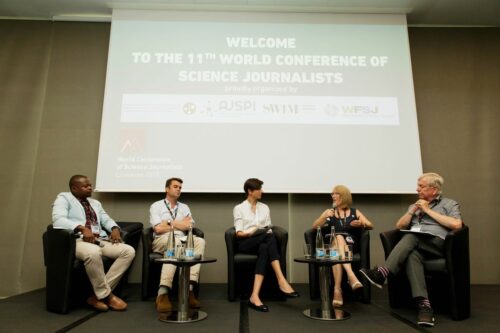
- This event has passed.
Too close for comfort? Embedded science journalism in extreme environments
3rd July 2019 @ 3:30 pm - 5:00 pm

Poles, oceans, pandemics: Science reporters are inevitably attracted by extreme environments. But reporting under such circumstances involves special relationships and risks between scientists, physicians, agencies, and journalists. Working in places that are dangerous or difficult to access often means science reporters must depend on sources for travel, accommodation, food, and security.
Meanwhile, when they’re close to their sources 24-7, journalists will inevitably learn much more about the science and the way it is done – including mistakes made and problems overcome – than they would in a regular, scheduled interview. What are the ethical risks and rules that should guide work in such circumstances?
Details
- Date: 3rd July 2019
-
Time:
3:30 pm - 5:00 pm
- Event Category: SPI Related Events
- Website: https://www.wcsj2019.eu/Sessions/Too-close-for-comfort%3F-Embedded-science-journalism-in-extreme-environments
Venue
- SwissTech Convention Center
-
EPFL
Lausanne, Switzerland + Google Map